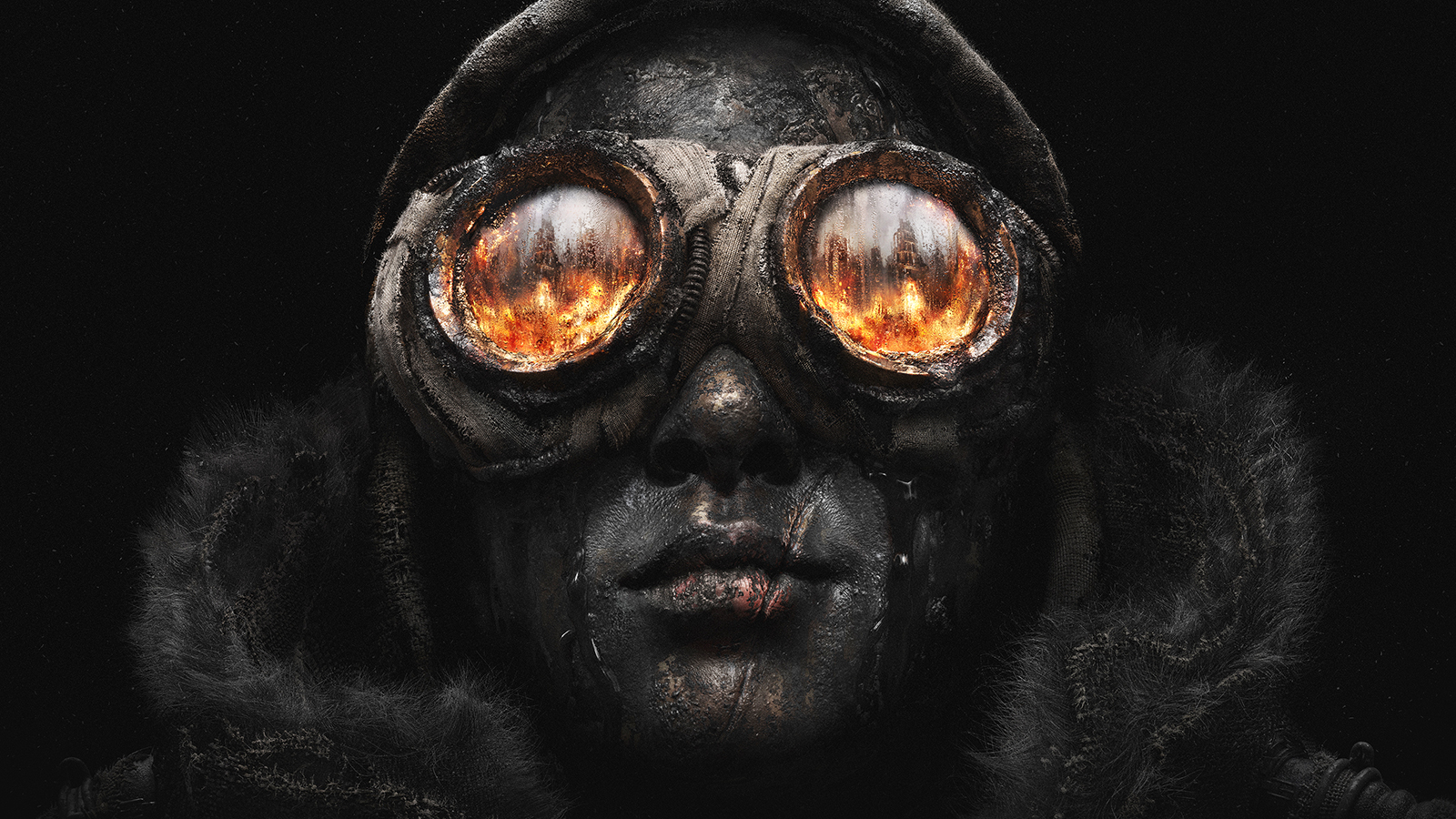
The city must not fall, which is unfortunate, because the city is very much in the process of falling. Oh, it went alright there for a while: An egalitarian oasis among the glaciers, a frostbit upland of organised labour, respect for the environment, and an aggressive equal pay policy that saw the lowliest layabout earn the same wage as our most brilliant scientists.
But the problem with socialism is you eventually run out of, hang on, coal? It's that you run out of coal. And then the problems start. The ice I'd held at bay crept in on my infirmaries and creches, the machines that reproduced me stuttered and failed, and my subjects split into two factions: The ones who wanted my head, and the dead.
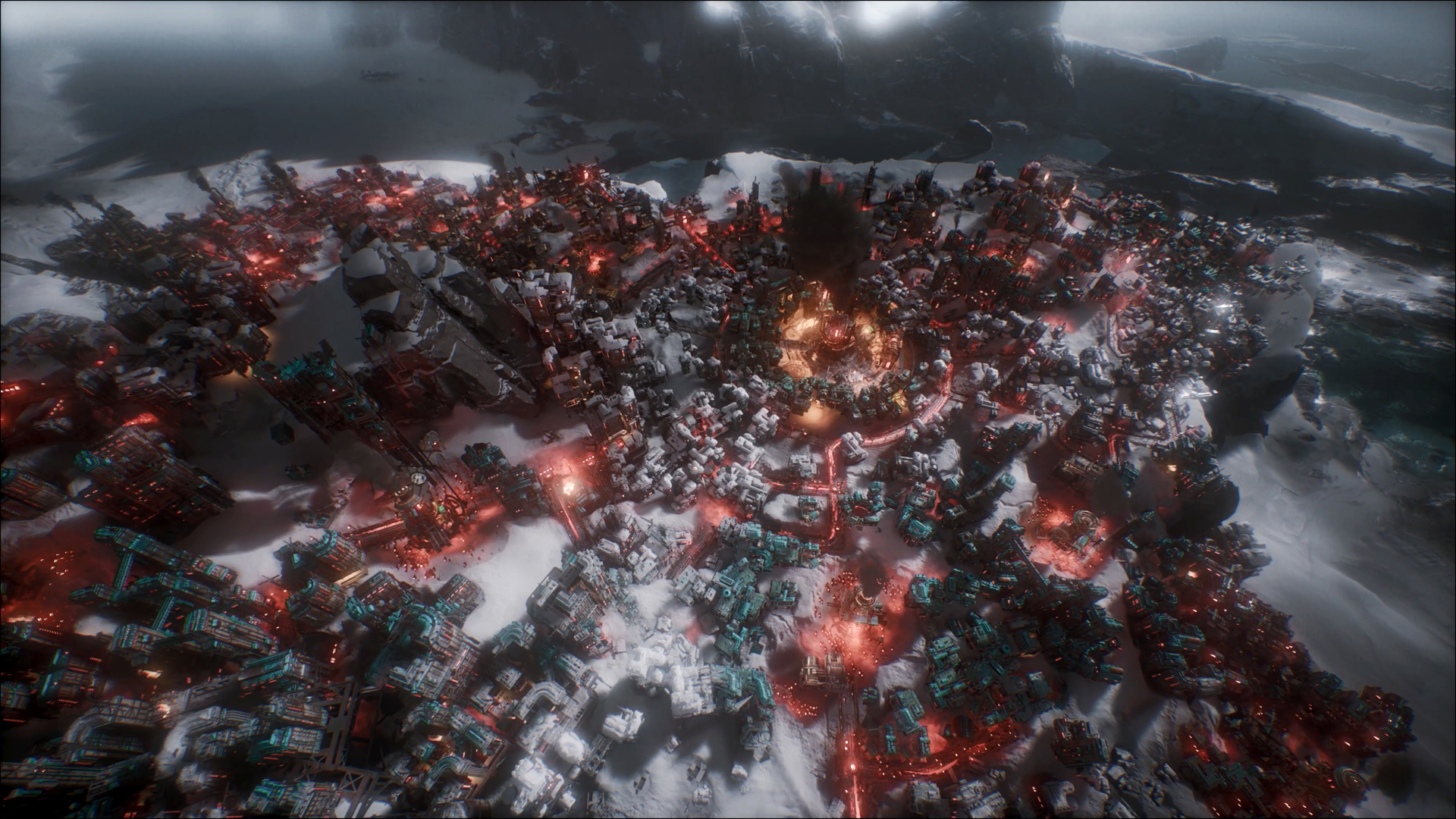
Frostpunk 2 is as unforgiving as its forebear, but wait, it's harder. In the first game, your authority was pretty much untrammelled. Passing laws was a matter of decree: You waved your hand and whole new social orders sprang into being.
But those were the old days. Back then you were playing the role of the Captain, the undisputed master and commander of Frostpunk the First's post-snowpocalyptic society. "What I say, goes" was the name of the game.
But now the Captain is dead and you're playing his handpicked successor, the Steward. Worse: The rabble have got into this dangerous new thing called democracy, effectively a massive conspiracy to make your job harder, and doing things like adding sawdust to everyone's daily meals or harvesting their organs after death now requires a lengthy parley with the city's factions and a tense vote in parliament.
Pure ideology
"Frostpunk 1 was an apocalyptic game, as the world was ending," says Frostpunk 2's co-director Jakub Stokalski. It was a question of how to "survive nature." By the time of the second game—where your city begins as an already sprawling metropolis—that question is pretty much answered, and the populace is looking forward. "These people, shaped by this ordeal, are now looking to find a future for themselves… they start having different ideas for this future, get pulled apart."
"It's not nature that's your worst enemy, it's human nature."
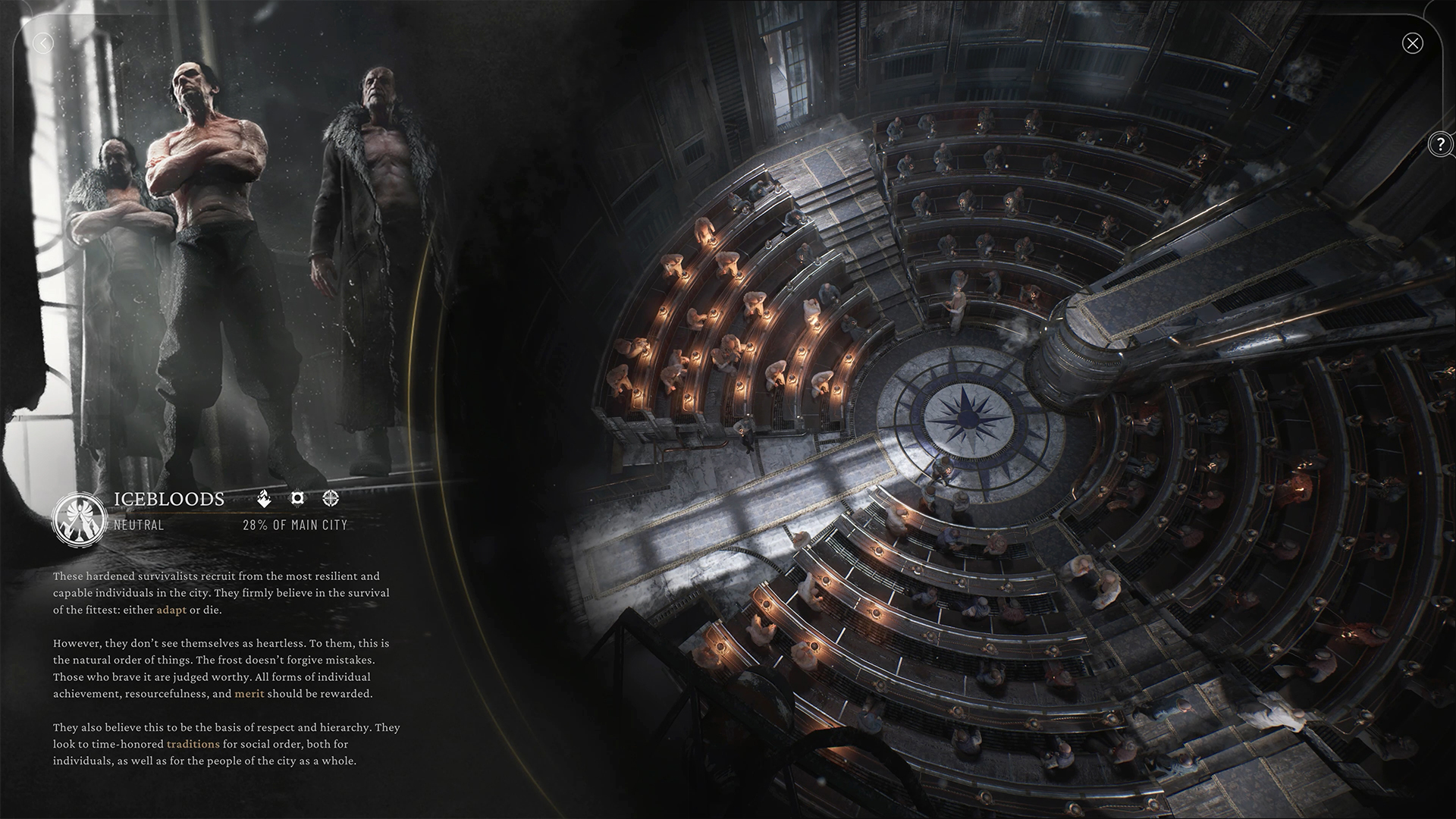
Those "different ideas for this future" are implemented mechanically by the game's faction and community system, a row of headshots along the bottom of your screen representing your society's many divergent points of view, and which cleave to the binaries of Adaptation vs Progress, Merit vs Equality, and Reason vs Tradition.
In my game—which, I should emphasise, never got too far due to the 'running out of coal' thing—those groups were divided into Frostlanders (hardcore adapters), New Londoners (tech-minded progress types), and the Stalwarts, the Captain's old hardcore supporters who are into conquering the frost with technology and cracking down hard on anyone who thinks otherwise.
"These people, shaped by this ordeal, are now looking to find a future for themselves"
Jakub Stokalski
All of them have their own opinion of you, and the communities can spawn factions, smaller but more dedicated cadres determined to push particular ideologies or policies. I only encountered one in my playthrough—a cabal determined to roll back my policies and implement a more meritocratic society—but Stokalski assures me it can get "crowded" and "crazy" if you let it, particularly outside the game's story mode.
Anyway, who cares what the factions think? I knew what my goal was from the start. A big objective icon declared that I had 523 weeks of remaining coal, time in which it was essential I found some sort of new energy source. I also had a housing crisis and a healthcare shortage on my hands, and a lack of consumer goods had produced an epidemic of crime in my streets.

Playing to the base
It was all so obvious: The conditions were ripe for communism. Actually, not just communism. Turbo-communism. A great leap into the final stage of history. A glittering ice city where war and class were scary stories for the children.
All I had to do was ram my preferred package of policies through parliament, which is where those communities and factions come in. The seats (and votes) in Frostpunk 2's parliament are occupied by those groups and they all have their own takes on the various laws you can propose. My parliament was split between about 10 Stalwarts, 40-or-so Frostlanders, and 50+ New Londoners.
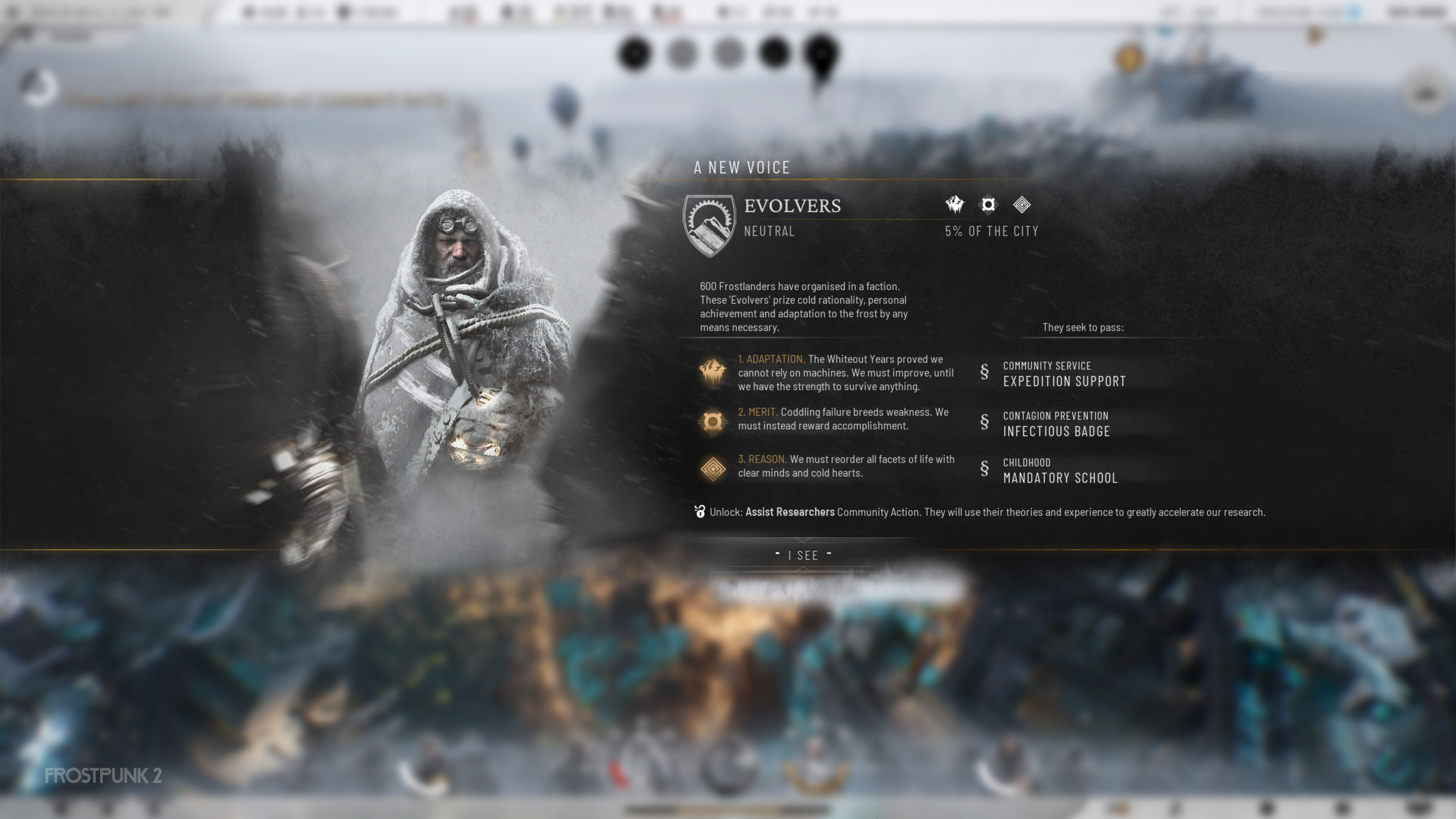
Inexplicably, none of them were keen on building the Fifth International. The laws I wanted to pass would ensure that everyone in my city got access to basic necessities regardless of whether they worked or not, and that everyone who did work would earn the same pay, from the garbagemen to doctors.
This was a conundrum. The Stalwarts hated this. As meritocratic, progress-obsessed reactionaries, they regarded my plans for the city as an insidious communist plot, which was only two-thirds true. Luckily, there were only 10 of them, so it wasn't worth my time engaging. Into the dustbin of history they went.
The Frostlanders and New Londoners were trickier. Both were split more-or-less down the middle. When I checked the policy screen to check my laws' potential to pass, the predicted outcome was ominously uncertain: 20-or-so against, 30-or-so for, and all the rest infuriatingly undecided. I could roll the dice if I wanted—I'd passed other laws where the undecideds ultimately came down in my favour—but this was the future of the human race we were talking about. I didn't want to leave things to chance.
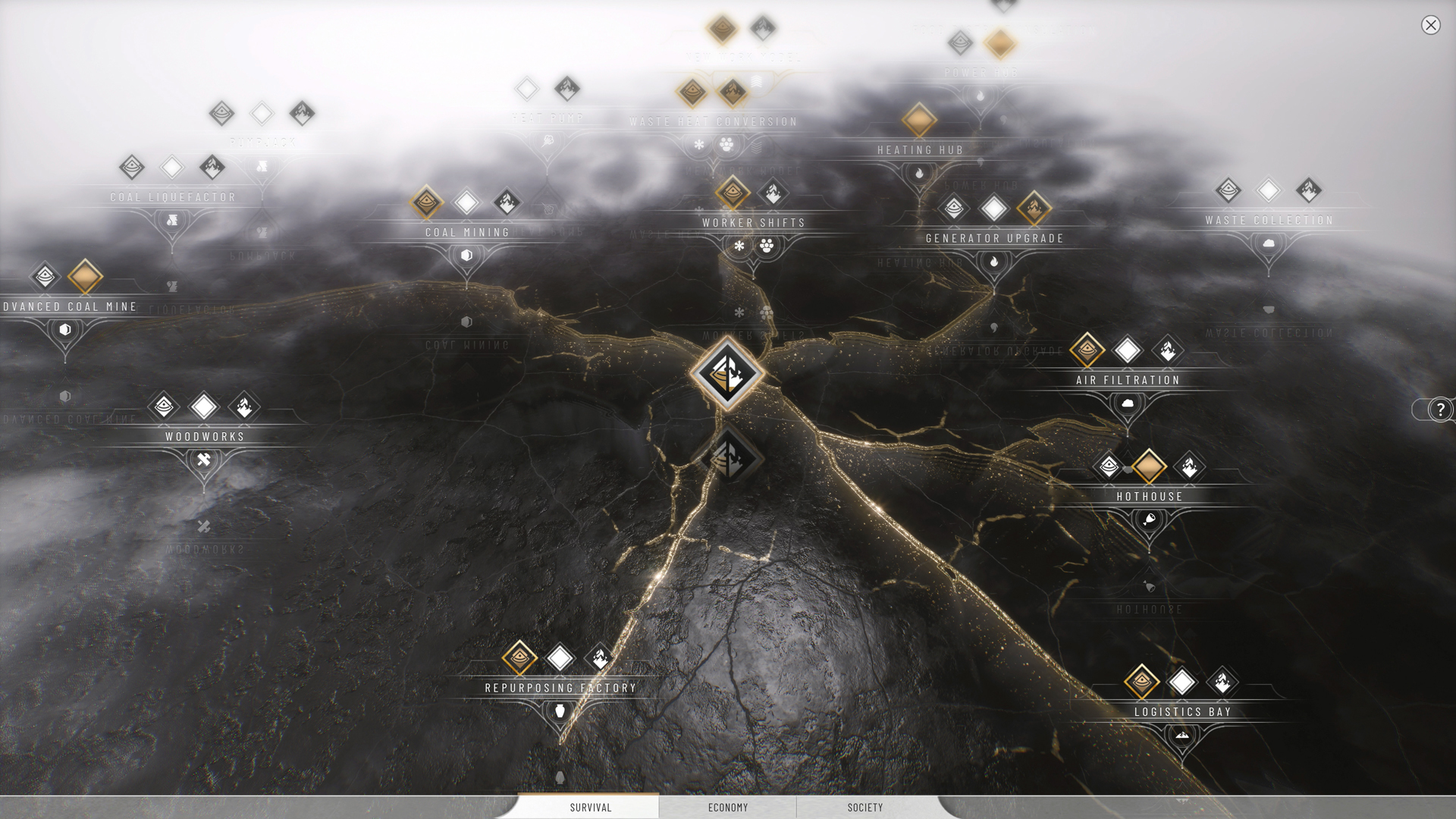
So it was time to gladhand, Capitol Hill-style. The Frostlanders liked me more than the New Londoners already. The reason was Frostpunk 2's new research system: Rather than progressing linearly up a tech tree, each community in your city pitches various iterations on an idea and you choose which one to go with. I'd been predisposed to the Frostlanders' more sustainable inventions up until this point, and they were keen on me in return.
So I made them a promise: I'd pass a law they wanted—mandatory civilian support for our explorers out in the wasteland—in exchange for their support on my whole ice-communism thing, and so a deal was struck. The law passed easily, a new world was built, everyone lived happily ever after.
Iced out
For a bit. You've got to give me this: Things actually went real well for a while there. Sure, the equal pay law kicked off a chain of events that saw my city's more managerial and bourgeois elements grumble and mither, but people were—mostly—quite happy under the new order.
But here's the rub: That law I promised to pass for the Frostlanders? Well, not everyone was keen on that either. I had to bargain its way through parliament again, which meant more promises, which led to more promises, which led to more promises. Awful politician that I am, I actually moved heaven and Earth to keep them all, and the simple process of keeping track of everything I'd pledged to everyone distracted me from the minor task of securing a new fuel source for our heaters.
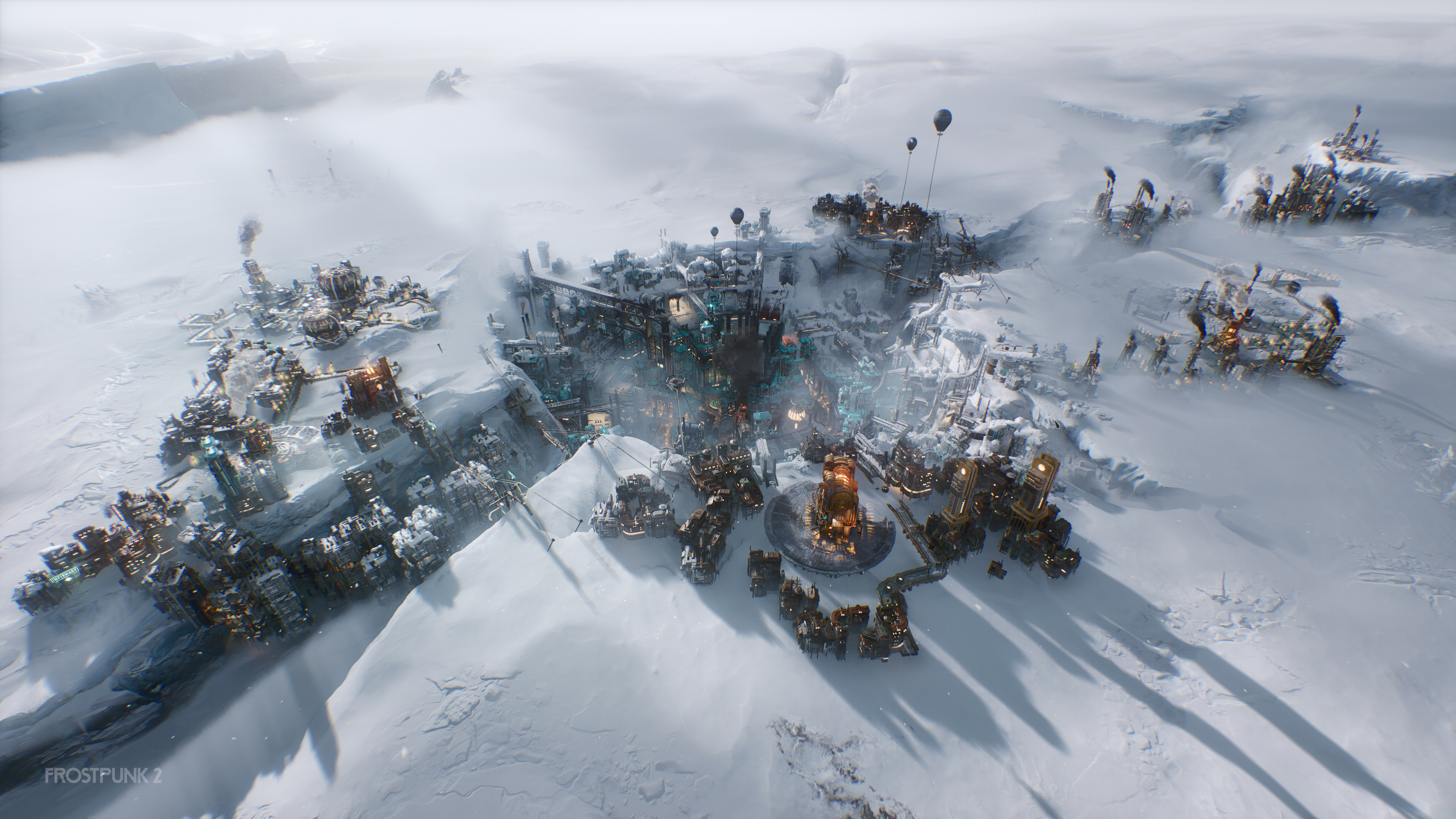
Everyone was incredibly happy with me and all my kept promises right up until the coal ran out, which I'd kind of stopped paying attention to as I got ensnared in a thicket of political manoeuvring and ideology. I wasn't overwhelmed—the game does a good job of not bombarding you with too much information and mechanical complexity, and Stokalski says it's a conscious effort by the devs to make sure you're never "doing notes, doing maths on the side just to not die"—I'd just gotten wrapped up in ideas without paying much heed to material reality.
So the generator wheezed its last, the rime built up on our infrastructure, and all the happiness meters for those groups that been oh-so-pleased with me flipped to angry, empty red. It wasn't long before I was booted from power and my beautiful frostbitten soviet went the way of the Paris Commune.
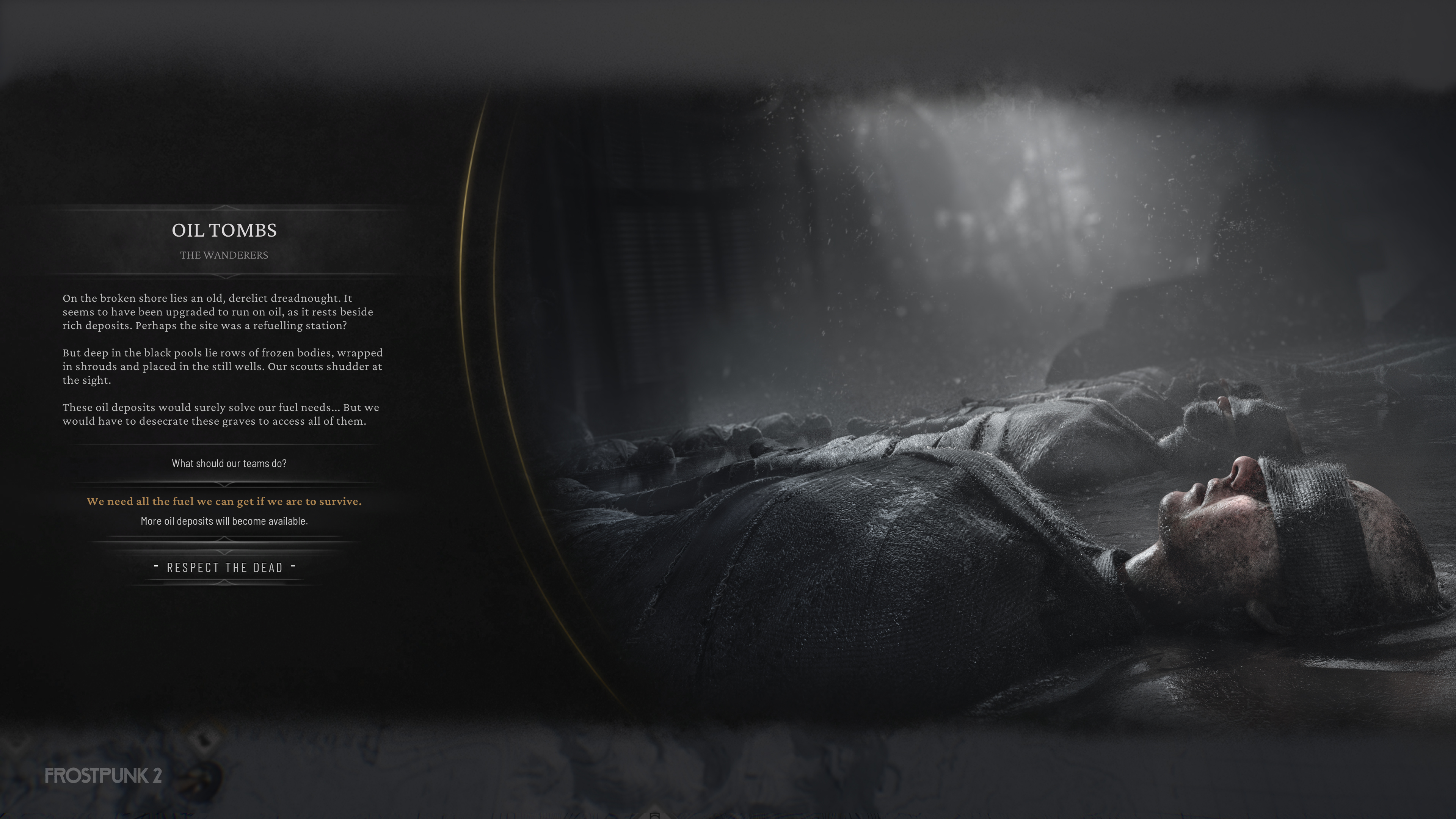
But for a moment, a brief, shining moment, we had our glittering ice city.
The post-post-apocalypse
So Stokalski is right—which I suppose isn't surprising, given he co-directed the game—Frostpunk 2 is a few steps up on Maslow's hierarchy of needs. If the first game was about the post-apocalypse—scrounging together the literal necessities for existence—then this game is post that. It's about figuring out what the future is after the entire world's been destroyed, although even if the questions of food and coal are settled for now, they always threaten becoming an issue all over again.
And so far? I'm into it. From my time with the game, Frostpunk 2's political elements feel like a natural evolution of the first-game's comparatively rudimentary Discontent/Hope and Order/Faith systems, forcing you to consider what your citizens want and not just what they need. Success is no longer just an issue of having enough food to outlast a whiteout, it's a much broader category. So too is failure.
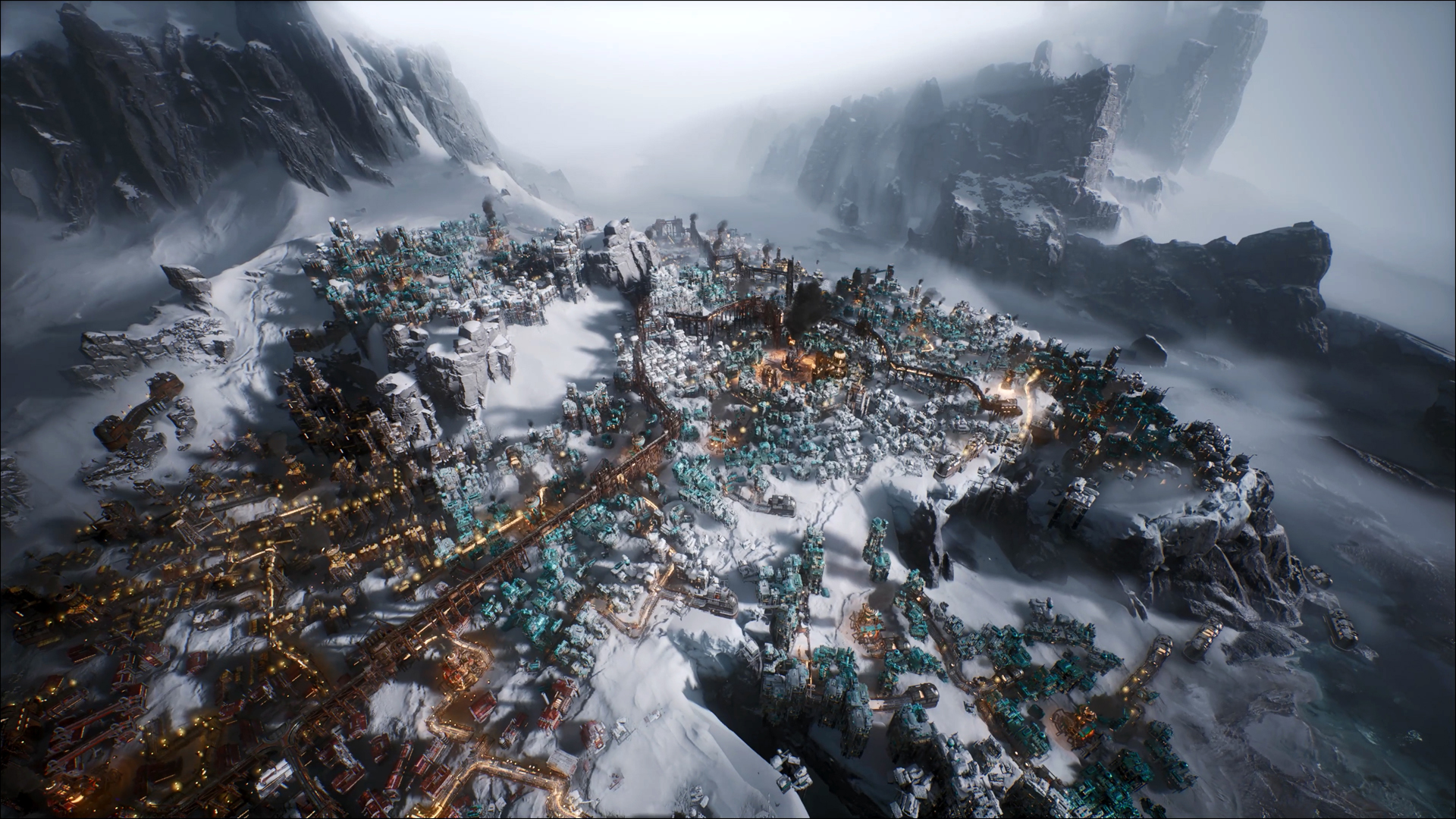



!["[T]he First and Fifth Amendments Require ICE to Provide Information About the Whereabouts of a Detained Person"](https://images.inkl.com/s3/publisher/cover/212/reason-cover.png?w=600)



